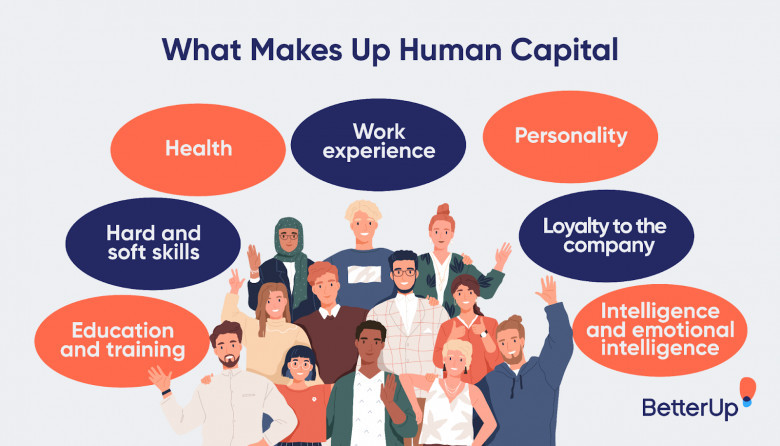views
What is the Role of Health in Human Capital Formation?
Human capital formation refers to the process of improving the quality and productivity of the workforce through education, skill development, and health. While education and training are often highlighted, health plays an equally critical role in shaping human capital. In fact, a healthy population forms the backbone of a productive economy and a vibrant society.
In this article, we will explore the role of health in human capital formation, its significance in national development, and the ways governments and individuals can invest in health to build a stronger, more capable workforce.

Understanding Human Capital Formation
Human capital formation is the development of people’s abilities and qualities through investments in education, training, and healthcare. This process improves productivity, innovation, and economic growth. In simple terms, it’s about nurturing and enhancing the skills, knowledge, and health of individuals to make them more productive members of society.
The Importance of Health in Human Capital Formation
1. Enhances Productivity
Good health increases the physical and mental capacity of individuals, allowing them to perform better at work or school. Healthy individuals take fewer sick leaves, work more efficiently, and contribute more to the economy. A healthier workforce equals a more productive workforce.
2. Reduces Healthcare Costs
When people are healthy, governments and families spend less on medical treatment. These savings can be redirected toward other areas such as education, infrastructure, and social welfare, further strengthening human capital development.
3. Improves Learning Ability
Health and nutrition are vital for children's cognitive development. A well-nourished child is more attentive, learns faster, and performs better academically. Poor health in early childhood can have long-term negative effects on educational attainment and future job prospects.
4. Increases Life Expectancy and Work Span
Healthy individuals tend to live longer and remain active in the workforce for extended periods. This longer working life contributes positively to the economy and allows individuals to gain more experience and refine their skills over time.
5. Promotes Social and Economic Equity
Investing in public health helps reduce inequalities. Access to basic healthcare services ensures that even the underprivileged can live healthy lives, participate in education and employment, and escape the cycle of poverty. Health is a fundamental right and a great equalizer in society.
Key Areas Where Health Impacts Human Capital Formation
• Nutrition
Proper nutrition is essential from infancy through adulthood. Malnutrition leads to stunted growth, weakened immunity, and cognitive delays, severely affecting learning and productivity.
• Sanitation and Clean Water
Access to clean drinking water and sanitation facilities prevents the spread of diseases like cholera, typhoid, and diarrhea, which can hinder educational attendance and work participation.
• Immunization and Disease Control
Vaccination and disease prevention programs help in reducing mortality and morbidity rates, especially among children, thereby improving school enrollment and performance.
• Mental Health
Mental wellness is crucial for cognitive function, learning, and workplace productivity. Addressing mental health issues reduces absenteeism and improves quality of life.
• Reproductive Health
Ensuring access to reproductive healthcare, especially for women, leads to better family planning, reduced maternal mortality, and improved child health, contributing to overall human development.
Government Role in Promoting Health for Human Capital
Governments play a key role in building human capital through healthcare policies and public health programs. Important steps include:
-
Investing in hospitals and healthcare infrastructure
-
Providing free or affordable healthcare services
-
Launching nutrition and immunization programs
-
Promoting health education and awareness
-
Improving maternal and child health services
These initiatives are essential to create a healthy population capable of learning, working, and innovating.
Conclusion
So, what is the role of health in human capital formation? Simply put, health is the foundation of human capital. A healthy population is more educated, skilled, and productive, which drives national economic growth and social development. Health should not be seen as a cost but rather as a long-term investment in human potential.






















Comments
0 comment